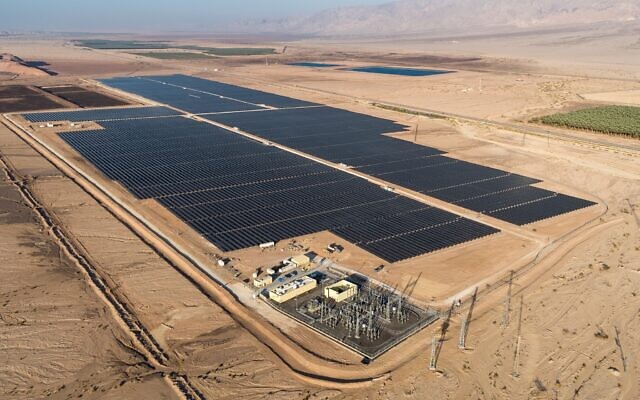The ministerial committee on legislative affairs again delayed a debate and vote on a climate bill on Sunday, after the finance and energy ministries stuck to their demand to make emissions reduction targets non-binding, and the environmental protection ministry insisted that if they were to be of any value.
The government pledged in its coalition agreement to pass a climate law that would commit to cutting global warming emissions by 50 percent by 2030. It raised the bar above 27% which was codified in a climate bill Which passed its first reading of the Knesset in July last year under the previous government’s environmental protection minister, Tamar Zandberg.
A stated desire for a better goal was cited as the reason for not voting to continue the Zandberg bill, but to introduce a new one from scratch.
But inter-ministerial wrangling means no progress is being made.
In recent days, there have been reports of ministers settling for a 30% reduction in emissions rather than a target of 50%.
Tammy Ganot, deputy CEO of environmental advocacy organization Adam Teva V’Din, told The Times of Israel that debating the percentage looks more like a delaying tactic.
Adam Teva V’din has consistently helped environmental protection ministers draft a climate bill that would force the government to meet emissions targets.
In 2020, the cabinet gave the go-ahead to the Ministry of Power with the aim of having 30% of Israel’s energy to come from renewable sources by 2030,
The state was supposed to produce 10% of its energy from renewables by the end of 2020, but only reached 9.2% by the end of last year.
The Ministries of Energy and Environmental Protection are increasingly indecisive about the pace of the move to renewable energy, with the former determined to fully exploit Israel’s natural gas reserves.

Energy Minister Israel Katz attends an energy conference in Tel Aviv on March 13, 2023. Tomer Newberg / Flash90)
Last week, it extended the deadline for the fourth competitive process to award new licenses for natural gas and offshore oil exploration till July 16.
Also under dispute is whether to create large-scale solar fields in open spaces, which the Ministry of Energy supports, or preserve open spaces by focusing on dual-use sites – rooftops, parking lots, and agricultural buildings. Paneling on everything from traffic intersections to cemeteries.
Placing solar panels in urban areas means that energy is produced closer to where it is consumed. Creating solar fields in peripheral areas where there is space requires building infrastructure to get energy to the center of the country where most Israelis live.

Timna, a solar field in southern Israel, was built by EDF Renewables Israel and formally opened on December 15, 2021. (EDF Renewable Israel)
Last week, the power ministry asked the National Planning and Construction Committee to expand 20,000 dunams (4,950 acres) that were zoned for solar fields to 69,000 dunams (17,000 acres), arguing that bureaucracy and Other constraints severely limited the dual-use potential. facilities.
The committee agreed to create a zone additional 40,000 dunamsDespite opposition from the Ministry of Environmental Protection.
Just weeks ago, the 38-member Organization for Economic Co-operation and Development criticized Israel falling behind on your goals over the past decade to reduce global warming emissions and increase subsidies for fossil fuels.

Jo Tindall (left) and Environment Protection Minister Idit Silman, director of the OECD’s Environment Directive, are pictured in Jerusalem on May 31, 2023. (Michael Dimenstein/GPO)
In October 2021, the state controller released a stinging report on the lack of action by successive Israeli governments over the past decade to prepare the country for the growing climate crisis.
A report by the United Nations Intergovernmental Panel on Climate Change released in March said The world must reduce 60% of greenhouse gases by 2035This is the maximum agreed by countries in Paris in 2015 to prevent temperatures from rising above 1.5 °C (2.7 °F), relative to the 2019 baseline.

